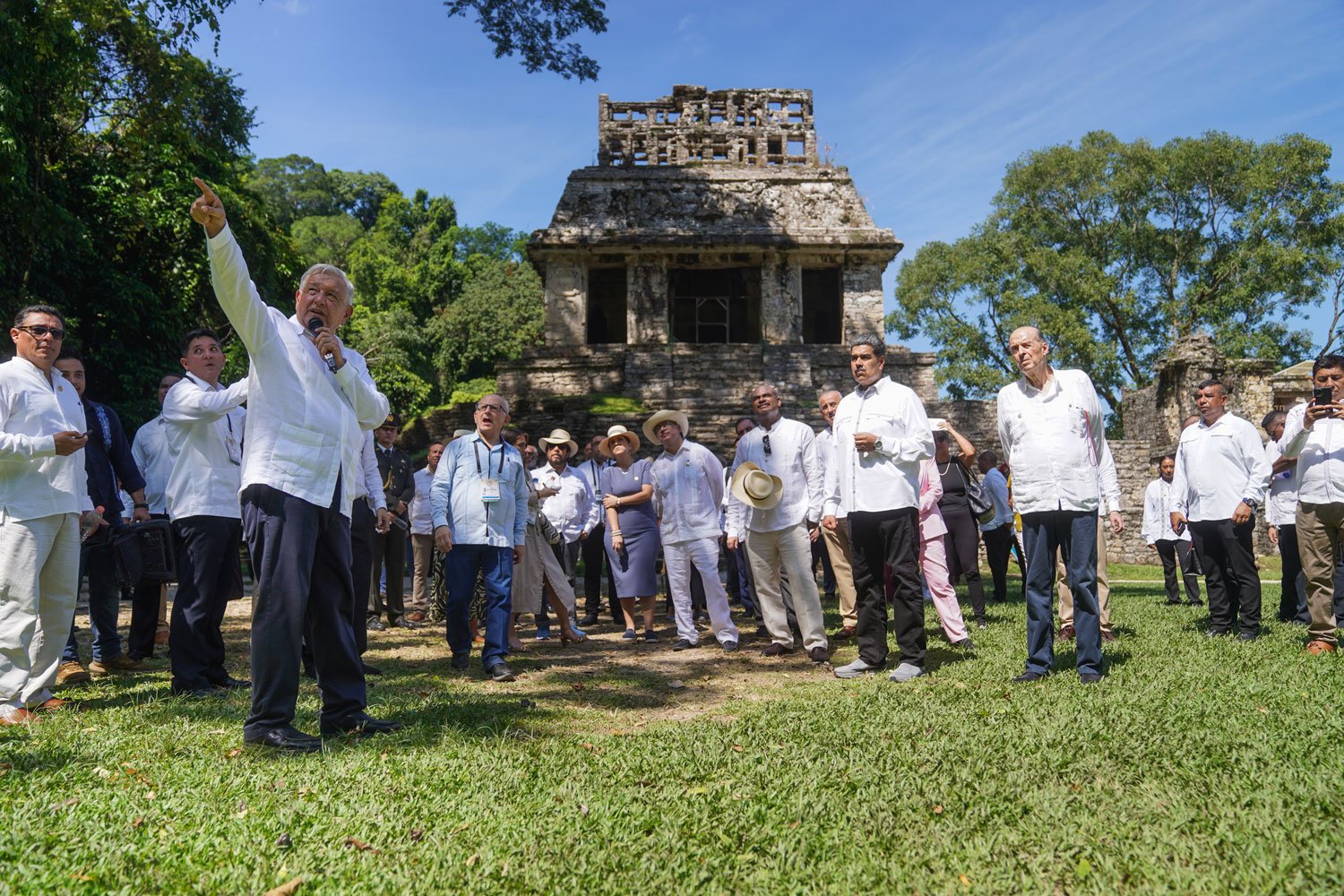MEXICO CITY (CN) — The leaders of Mexico and several other Latin American countries agreed to tackle the root causes of mass migration from the region with a coordinated development plan at a summit held in Palenque, Chiapas, on Sunday.
The participating countries “fundamentally agreed that migratory flows originate, primarily, from poverty, inequality, insecurity and the lack of economic opportunities,” according to a press release issued by Mexico’s Secretariat of Foreign Relations.
Convened by Mexican President Andrés Manuel López Obrador, the meeting was attended by the presidents of Honduras, Colombia, Cuba and Venezuela, as well as the prime minister of Haiti. High-ranking officials from El Salvador, Costa Rica, Panama and Guatemala also attended.
The countries agreed on a development plan “based on the priority objectives of each country, to deal with the structural causes of irregular migration in the region,” the press release said.
Mexico offered to implement two key social programs of the López Obrador administration — a reforestation project and a job placement initiative — in the attendee countries as a means of dealing with these causes.
But migrant activists don’t have faith that the programs will have the stated effect.
“They haven’t even shown themselves to be effective in Mexico, so I think there is much lacking here,” said Eunice Rendón, coordinator for the migrant advocacy group Agenda Migrante.
Some agreements from the summit — like creating a more comprehensive model for dealing with irregular migration and increasing labor mobility — could have important effects, Rendón said.
But by focusing on the economic drivers of migration, she said, the leaders missed the main issue. While insecurity was mentioned as a factor driving migration, “it’s not one of the causes, it’s the principal cause,” Rendón said.
“People go because the gang members threaten to kill them, because they try to forcibly recruit them,” she said, adding that the leaders failed to recognize this reality of the migration issue in their own countries.
The leaders also agreed to petition destination countries like the United States to broaden regular, safe and orderly pathways for migration, with a focus on labor mobility, and to urge them to adopt integral immigration policies that safeguard migrants.
The U.S. has long pushed for Latin American countries to take action to deal with their “shared responsibility” for the migration issue.
In a statement to Courthouse News, the State Department said it appreciates Mexico’s leadership on migration management, adding that the country is “an important partner in our regional efforts to address irregular migration through robust enforcement and enhanced access to lawful pathways.”
Still, the department underscored Mexico’s signing of the U.S.-led Los Angeles Declaration on Migration and Protection at the Summit of the Americas in June 2022.
“Together with governments throughout the region, we remain dedicated to expanding lawful pathways, enhancing protection, and humanely managing our borders under the framework of the Los Angeles Declaration on Migration and Protection,” a State Department spokesperson said.
Part of the plan agreed to on Sunday will be the proposal of a bilateral dialogue between the United States and Cuba.
López Obrador said Monday morning that he would bring up the issue with President Joe Biden during the Asia-Pacific Economic Cooperation Summit in San Francisco in November. López Obrador had initially declined an invitation to the summit, but reversed course this month, announcing that he would indeed attend.
The goal of the dialogue would be to “work out unresolved issues, most of all, those related to the blockade,” López Obrador said, referring to the U.S. trade embargo on Cuba.
Diplomatic relations between the two countries began to thaw under the administration of former President Barack Obama, but his successor Donald Trump reinstated travel and trade restrictions in 2017.
The embargo “does much harm to human beings,” López Obrador said. “It’s a flagrant violation of human rights.”
The State Department did not immediately respond to a request for comment on the issue of opening a dialogue with Cuba.
Subscribe to Closing Arguments
Sign up for new weekly newsletter Closing Arguments to get the latest about ongoing trials, major litigation and hot cases and rulings in courthouses around the U.S. and the world.








